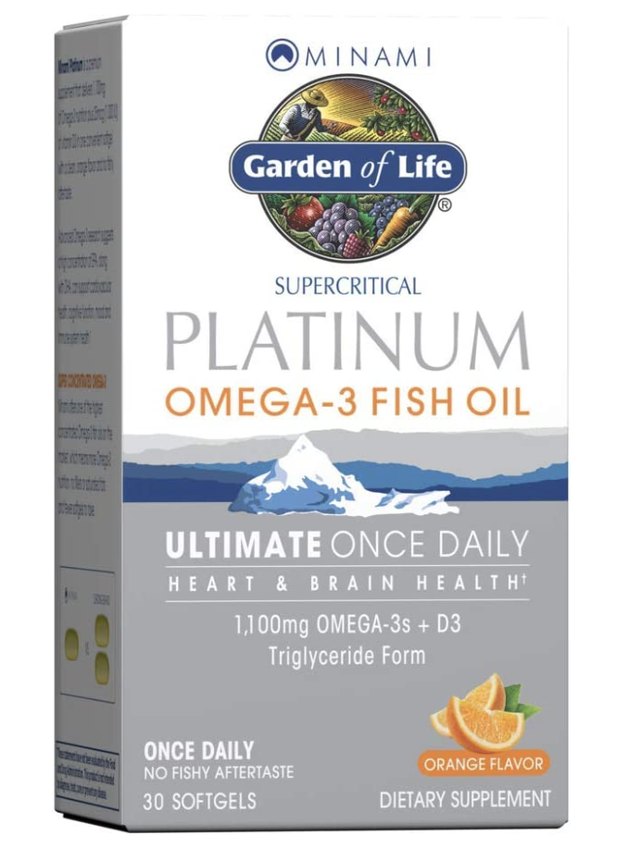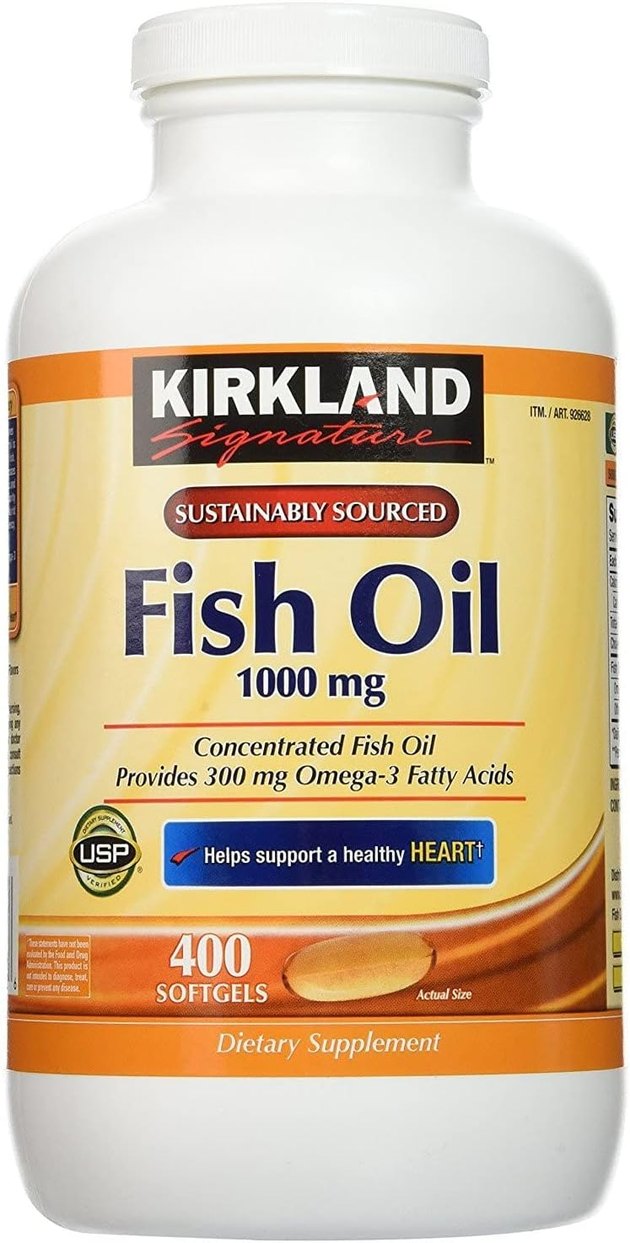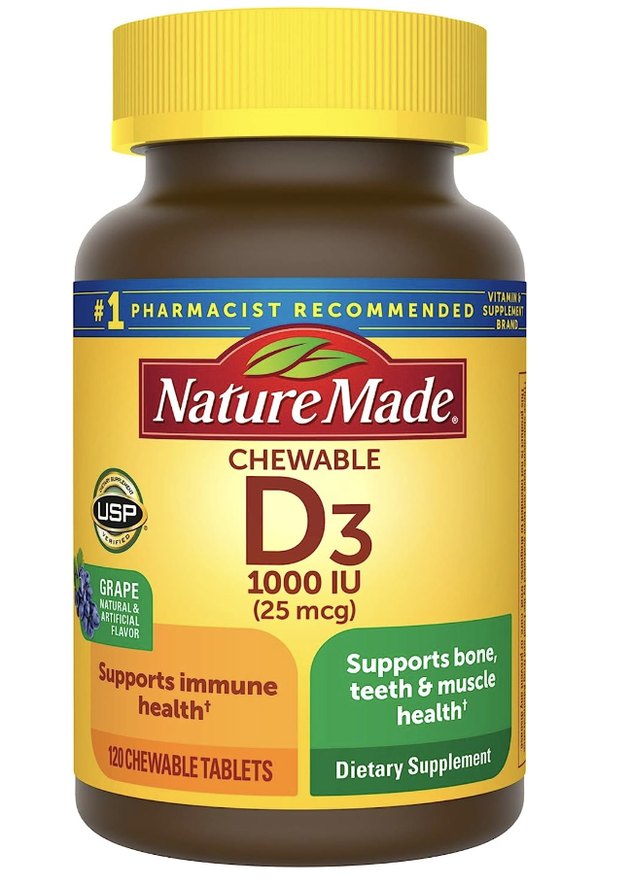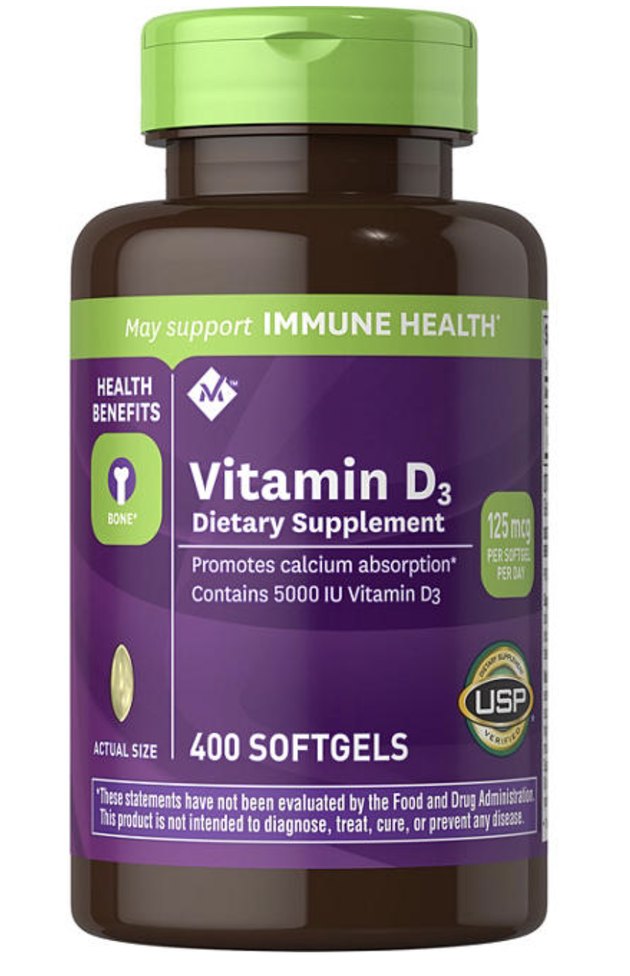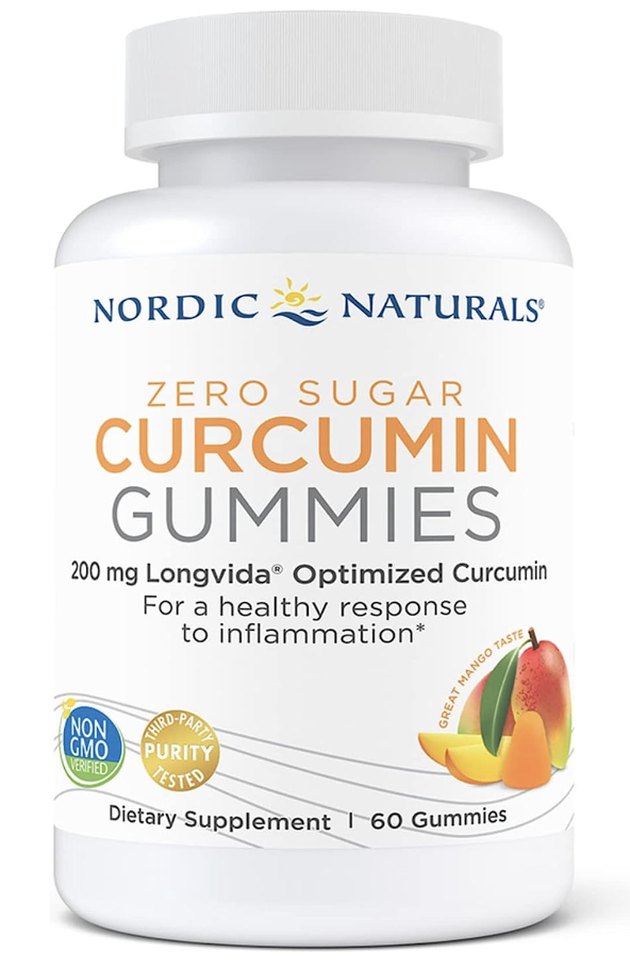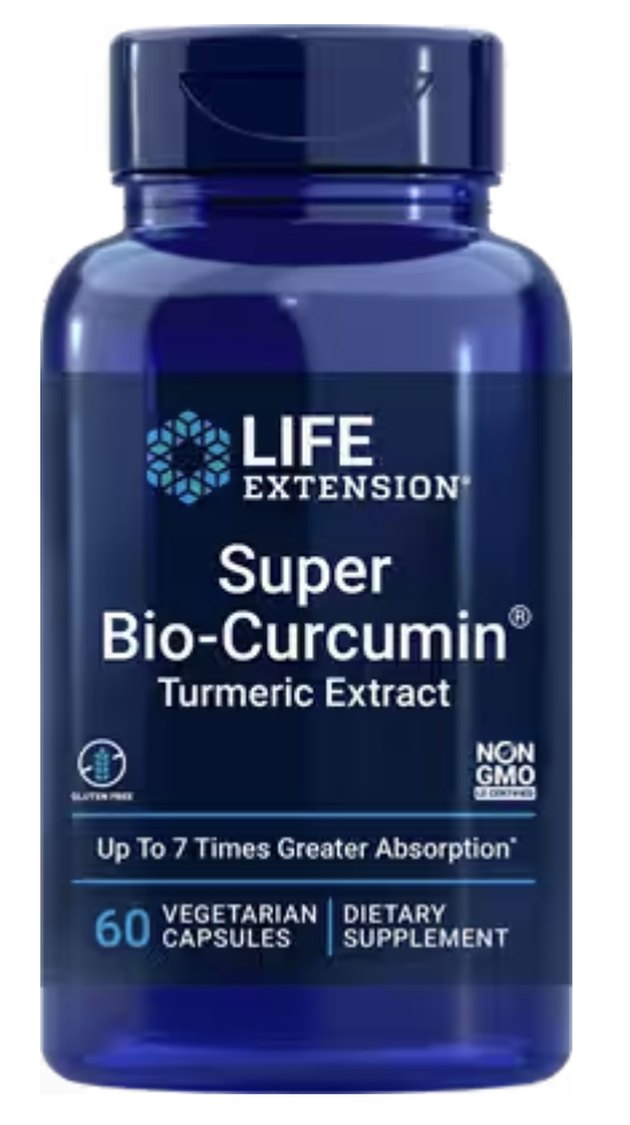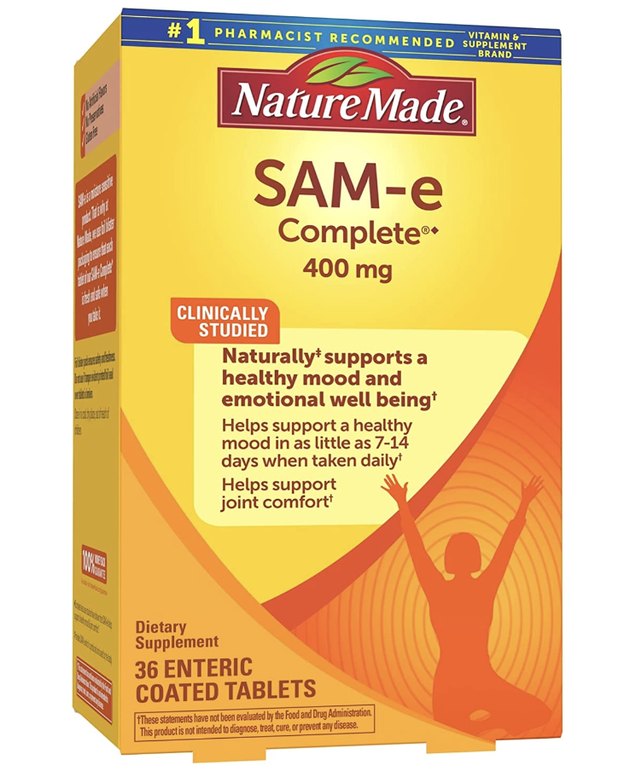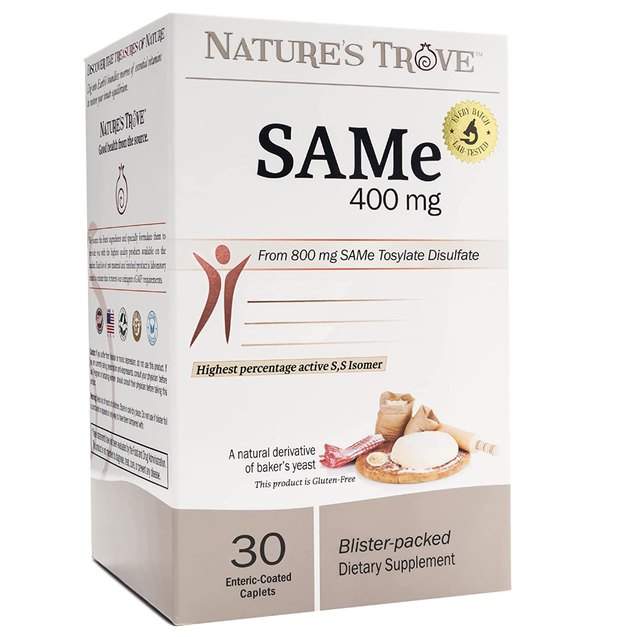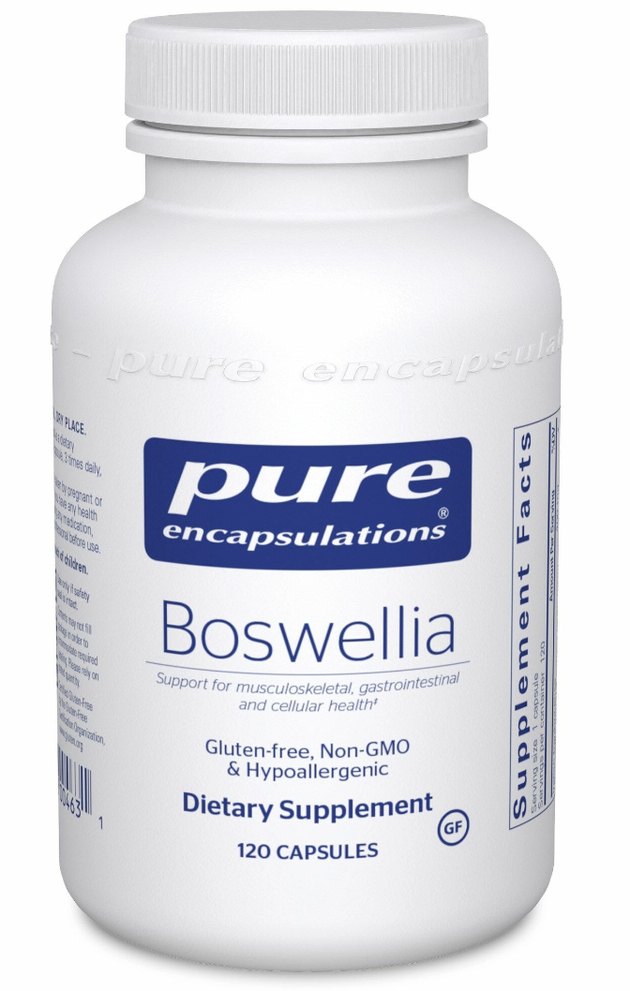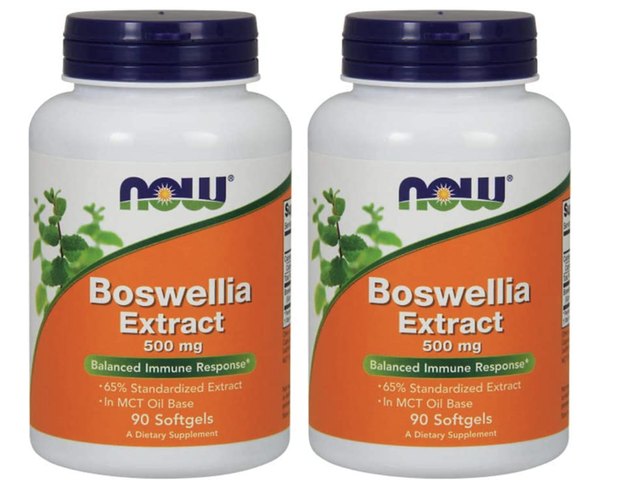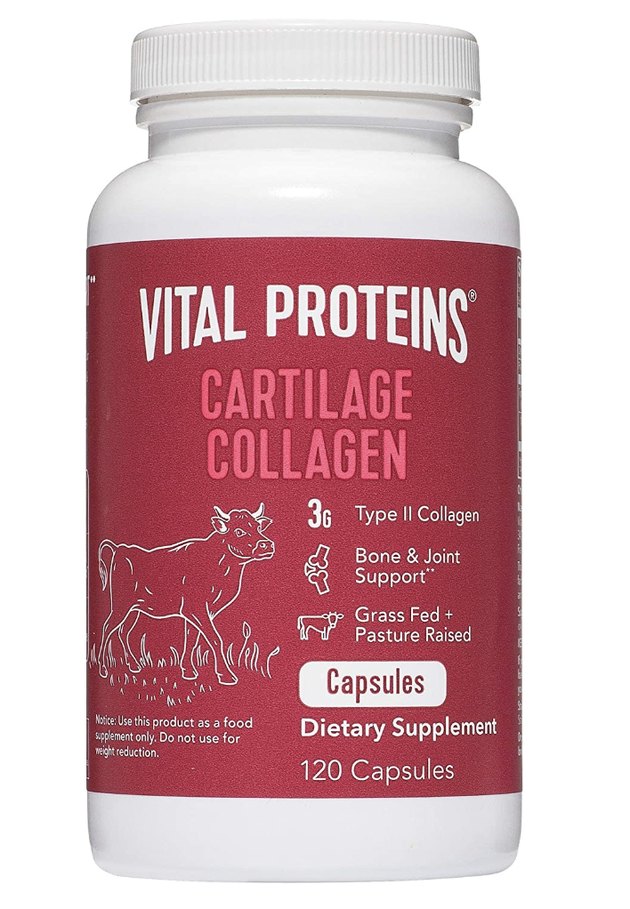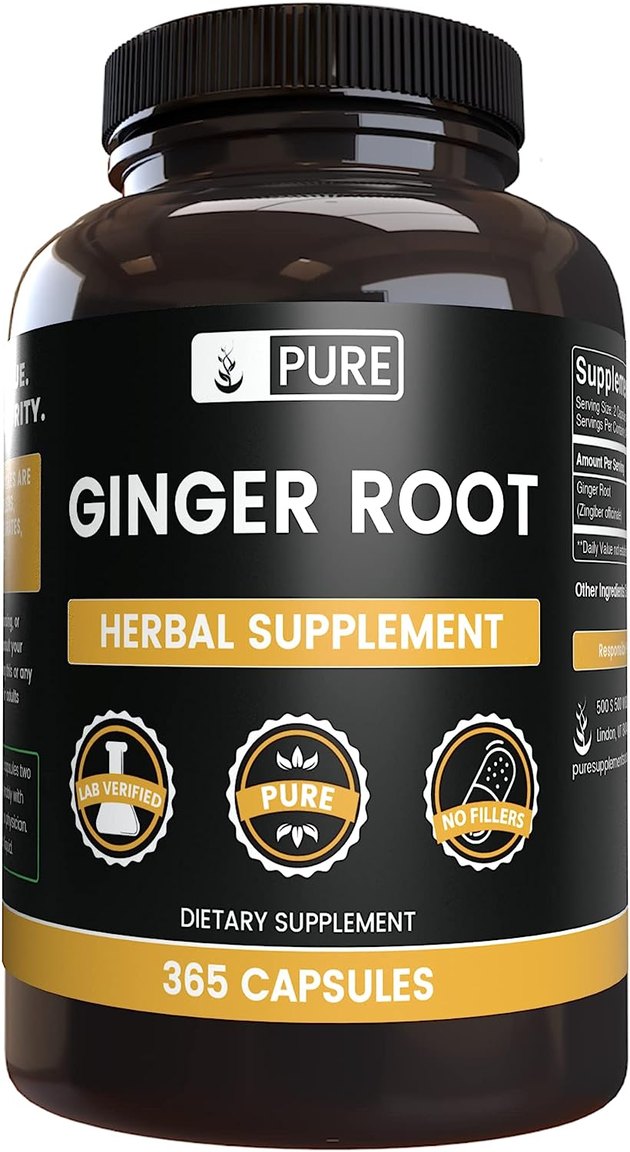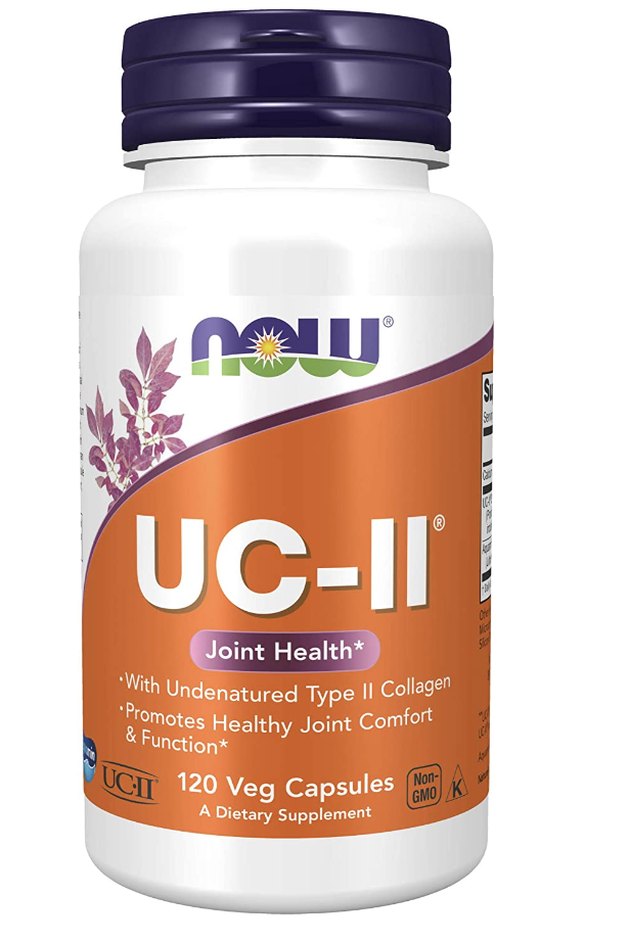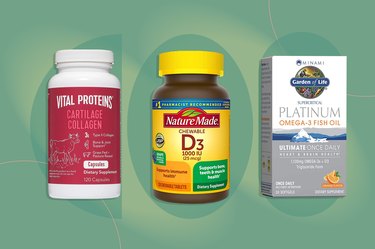
When you've got joint pain, whether from arthritis, injury or just day-to-day achiness, it makes sense to want to do what you can to relieve it. After all, your joints support you in just about everything you do, so pain-free movement is always the goal.
A good first step is a trip to your doctor to pinpoint the cause of the aches or inflammation, and then you can start finding ways to minimize that pain.
Video of the Day
Video of the Day
Here's the thing: Joint health is often dependent on total body health. Your exercise habits, nutrition and lifestyle can all affect levels of inflammation in the body and the health of your joints. The same goes for vitamins and supplements.
Supplements aren't a treatment for joint pain, and they should never replace medication or other lifestyle changes prescribed by your doctor to manage a joint condition. You should always talk to your doctor before adding a supplement to your regimen to make sure it's safe for you based on your medical history and any current conditions or medications.
With that said, here are the best supplements for joint health to chat with your provider about at your next visit.
The Best Supplements for Joint Health
- Best Omega-3: Garden of Life Minami Supercritical Platinum Omega 3 Fish Oil Supplement Capsules ($25.62, Amazon); Kirkland Signature Fish Oil Softgels ($17.49, Costco)
- Best Vitamin D: Nature Made Vitamin D3 Chewables ($9.98, Walmart) and Member's Mark Vitamin D3 ($9.98, Sam's Club)
- Best Turmeric or Curcumin: Nordic Naturals Zero Sugar Curcumin Gummies ($25.46, Walmart); Life Extension Super Bio-Curcumin ($19.95, Life Extension)
- Best S-Adenosyl-L-methionine (SAMe): Nature Made SAM-e ($32.74, Amazon); Nature's Trove SAM-e ($17.49, Amazon)
- Best Boswellia Serrata: Pure Encapsulations Boswellia ($19.20, Pure Encapsulations); NOW Supplements Boswellia Extract ($34.89, Amazon)
- Best Collagen: Vital Protein Cartilage Collagen Capsules ($41, Vital Proteins); NOW Collagen Supplements ($32.34, Amazon)
- Best Ginger: Pure Original Ingredients Ginger Root Capsules ($16.99, Amazon)
How We Chose
We tapped several registered dietitians as well as current research to understand which supplements can help with joint pain and/or can support joint health. The following products also fit this criteria:
- The brand follows the FDA's current good manufacturing practices and/or has been third-party tested
- The supplement has a limited amount of fillers, such as added sugar or other non-nutritive ingredients
Find more information on how we choose and cover products here.
1. Omega-3 Fatty Acids
Pros
- No fishy aftertaste
- Climate pledge-friendly
- Orange flavor
Cons
- Can be hard to swallow for some people
- Can cause burps
Pros
- USP verified
- Sustainably sourced
- Gluten-free
Cons
- Some reviewers say the formula has changed
Many studies show the anti-inflammatory properties of omega-3 fatty acids. The National Center for Complementary and Integrative Health (NCCIH) concludes that omega-3 fatty acids may help relieve the symptoms of rheumatoid arthritis (RA), an autoimmune condition that causes severe joint pain and destruction.
What's more, a June 2020 review in the Mediterranean Journal of Rheumatology looked at nine clinical human studies and found omega-3 fatty acid supplementation may contribute to less swelling and tender joints for those with RA.
Omega-3 supplementation usually comes with minimal side effects, and those can include bad breath, gastrointestinal discomfort and nausea, according to the National Institutes of Health.
Warning
If you're taking an anticoagulant ("blood-thinner") medication such as Coumadin or warfarin, talk to your doctor before taking an omega-3 supplement.
2. Vitamin D
Pros
- USP verified
- Chewable
- Grape flavored
Cons
- May taste too sweet for some people
Pros
- USP verified
- Potent
- Easy-to-swallow softgels
Cons
- Softgels can melt together if not stored in a cool, dry place
By now, you've likely heard about the power of vitamin D. Normally our bodies can make vitamin D — technically a hormone — from the sun, but if you're indoors a lot, you might not be getting enough.
Vitamin D has been widely studied for its effect on osteoarthritis (OA), and most notably, for its effects on knee osteoarthritis, which affects 83 percent of those diagnosed with OA. A 2020 meta-analysis in BMJ Open found inconclusive results relating to knee pain and vitamin D supplementation. This means that some studies have shown links, but others have not.
Still, one October 2017 randomized controlled trial (the gold standard of studies) in The American Journal of Medicine found that people who were consistently insufficient in vitamin D had worse physical function than those with good vitamin D levels.
"Vitamin D supplementation may help reduce joint pain in individuals with OA," says registered dietitian Lisa Andrews, owner of Sound Bites Nutrition.
Vitamin D may also benefit those with RA due to its role in immunity, Andrews adds: "Lower vitamin D levels in individuals with RA often present with worse clinical outcomes, including pain and disfigurement. Supplementation of vitamin D has shown to reduce cytokine production in the spleen — a marker of inflammation."
While researchers haven't established a definitive link between knee osteoarthritis and vitamin D status, it's important to keep those levels high. This means getting your vitamin D checked yearly and if you're low, speak with your doctor or dietitian on how to raise it to sufficient levels.
3. Turmeric and Curcumin
Pros
- Non-GMO
- Third-party tested
- Gelatin-free (vegan)
Cons
- Contains xylitol, which is not tolerated well by some people
Pros
- Gluten-free
- Non-GMO
- Vegetarian
Cons
- Some people say they don't feel results
Turmeric is a spice that's gaining popularity in Western cooking. The active ingredient is curcumin, which is responsible for the anti-inflammatory action of turmeric.
Turmeric has been shown in multiple studies to reduce pain associated with osteoarthritis. In fact, major findings from a January 2021 systematic review in BMJ Open Sport & Exercise Medicine show turmeric may reduce pain and improve physical functioning, and it may be a complement to commonly prescribed anti-inflammatory medication.
Keep in mind that pairing turmeric with black pepper and fat helps your body better absorb its benefits.
4. S-Adenosyl-L-methionine (SAMe)
Pros
- Pharmacist-recommended
- Clinically studied
Cons
- Some reviewers say it causes gas and stomach issues
Pros
- Enteric-coated for optimum absorption
- Non-GMO
- Allergen-free
Cons
- Some reviewers say it causes stomach pain
S-Adenosyl methionine, or simply abbreviated as SAM-e, is a compound we make in our bodies. It has been widely studied for its effects on depression. Interestingly, depression and osteoarthritis have been linked by scientists, and this prompted research on possible associations between SAMe and OA.
The current research points to SAMe being as effective as non-steroidal anti-inflammatory drugs (NSAIDs) in reducing pain and improving joint function, according to the National Center on Complementary and Integrative Health.
5. Boswellia Serrata
Pros
- Vegan
- Non-GMO
- Tested for solvents, pesticides, heavy metals and microbial contaminants
- Hypoallergenic
Cons
- Some Amazon reviewers say it causes heartburn
Pros
- MCT oil base
- Soy-, egg- and dairy-free
- Can offer immune support
Cons
- Softgels can melt together if not stored in a cool, dry place
You may have a hard time pronouncing Boswellia serrata, but this supplement was found to be effective in reducing pain and stiffness and improving joint function, according to a 2020 systematic review and meta-analysis in BMC Complementary Medicine and Therapies.
The researchers indicate that Boswellia should be taken for four weeks to start seeing results.
Registered dietitian Sharon Puello, RD, CDN, says Boswellia "can also be helpful as it can decrease the function of enzymes that generally work to break down cartilage, and may be extra beneficial if you have inflammation, as studies show Boswellia serrata to be effective at decreasing high-sensitivity C-reactive protein levels — one of the best markers of inflammation in the body."
As with any supplement, but especially with herbs, the decision to take Boswellia and dosage should be discussed with your doctor to ensure effective treatment for your joint pain and no medication interactions.
6. Undenatured Type II Collagen (UC-II)
Pros
- Gluten- and dairy-free
- Grass-fed and pasture-raised bovine cartilage
- Filled with beneficial amino acids
Cons
- Suggested serving is 4 capsules multiple times a day to feel effects
Pros
- Adheres to current Good Manufacturing Practices (cGMPs)
- Vegetarian
- Easy-to-swallow pill
Cons
- It may take a while to notice results
Functional dietitian Jenna Volpe says not all collagen is created equal. She explains that, "type II undenatured collagen is not very prevalent in the human body, but it's been found to be therapeutic in providing relief from joint pain, especially for people with arthritis."
Volpe points to a January 2016 study in Nutrition Journal: "When type II collagen was taken as a supplement over the course of six months, it was reported by participants to be significantly more effective in reducing joint pain compared to both placebo and glucosamine hydrochloride plus chondroitin sulfate supplements," she says. The latter supplement is sometimes recommended for managing arthritis pain.
When choosing a collagen supplement, Volpe says capsules are often more practical and user-friendly than powder.
7. Ginger
Pros
- Naturally extracted
- No additives or fillers
Cons
- Not widely available
Ginger is an extremely popular culinary herb and also notable for its anti-nausea effects. What you may not know is that ginger is being studied for its anti-inflammatory properties, too.
One study used ginger powder in older adults with knee osteoarthritis to see if markers of inflammation would decrease. The randomized control trial showed that C-reactive protein — which goes up when there is inflammation — decreased with three months of ginger versus placebo, according to the July 2016 research in the Journal of Traditional and Complementary Medicine.
While some studies show the promise of ginger in helping calm inflammation in osteoarthritis, the NCCIH indicates there is not enough evidence to conclude that ginger is helpful for knee osteoarthritis.
Ginger has a good safety profile but can cause abdominal discomfort if taken in large amounts. Talk to your doctor before taking this supplement or any others.
How to Choose a Safe Supplement
The supplement aisle can be overwhelming and you can't always rely on the salesperson to point you in the right direction when it comes to safety. Arm yourself with a checklist of what to look for when you head out to find your joint supplement at the store or online.
1. Third-Party Testing
This is number one. At a minimum, the supplement company should be adhering to current good manufacturing practices (CGMP). This is a quality control program from the Food and Drug Administration that keeps an eye on a supplement company's manufacturing processes.
You can also look for independent third-party testing that checks for quality, purity, heavy metal testing and proper disintegration. The most common are Consumer Lab, NSF (also NSF for Sport) and USP. If this type of testing is done, it will typically be labeled directly on the bottle, or you can find this information on a manufacturer's website.
2. Fillers
You always want to keep your fillers to a minimum when choosing a supplement. This can be particularly important if you have allergies, because sometimes fillers contain gluten, soy or dairy. You should also be mindful of added sugars, alternative sweeteners or sugar alcohols in your supplements.
3. Dosage
Always pay attention to the dosage on the bottle. Serving sizes work similarly to the food label. For example, for some vitamin D supplements, the dosage may be 2,000 IU per serving, with two gummies as the serving size, not one.
If you have been given a recommendation from your doctor or dietitian, double-check your dosage on the bottle to ensure you are getting enough or not too much. Never take more than the recommended dose for you and your condition.
Who Needs a Supplement?
This is the ultimate question. The answer to whether or not you need a supplement is between you and your health care team. If you have dietary restrictions, allergies or simply a poor diet, you might be a good candidate for a supplement.
If you are taking any type of medication, you should hold off on taking any supplements until you talk to your doctor to double-check that your chosen supplements do not interfere with your current meds.
- Rheumatology: "What is the Evidence for a Role for Diet and Nutrition in Osteoarthritis?"
- Mediterranean Journal of Rheumatology: "The Effect of Omega-3 Fatty Acids on Rheumatoid Arthritis
- NIH: "Omega-3"
- BMJ Open: "Effect of Vitamin D Supplementation on Pain and Physical Function in Patients with Knee Osteoarthritis (OA): An OA Trial Bank protocol for a Systematic Review and Individual Patient Data (IPD) Meta-Analysis"
- The American Journal of Medicine: "Maintaining Vitamin D Sufficiency Is Associated with Improved Structural and Symptomatic Outcomes in Knee Osteoarthritis"
- BMJ Open Sport & Exercise Medicine: "Therapeutic effects of turmeric or curcumin extract on pain and function for individuals with knee osteoarthritis: a systematic review"
- NCCIH: "SAMe: In Depth"
- BMC Complementary Medicine and Therapies: "Effectiveness of Boswellia and Boswellia extract for osteoarthritis patients: a systematic review and meta-analysis"
- Journal of Traditional and Complementary Medicine: "Effect of Ginger Powder Supplementation on Nitric Oxide and C-reactive Protein in Elderly Knee Osteoarthritis Patients: A 12-week Double-Blind Randomized Placebo-Controlled Clinical Trial"
- Nutrition Journal: "Efficacy and Tolerability of an Undenatured Type II Collagen Supplement in Modulating Knee Osteoarthritis Symptoms: A Multicenter Randomized, Double-blind, Placebo-controlled Study"
- NCCIH: "Omega-3 Supplements: In Depth"
- NCCIH: "Ginger"
Is this an emergency? If you are experiencing serious medical symptoms, please see the National Library of Medicine’s list of signs you need emergency medical attention or call 911.
